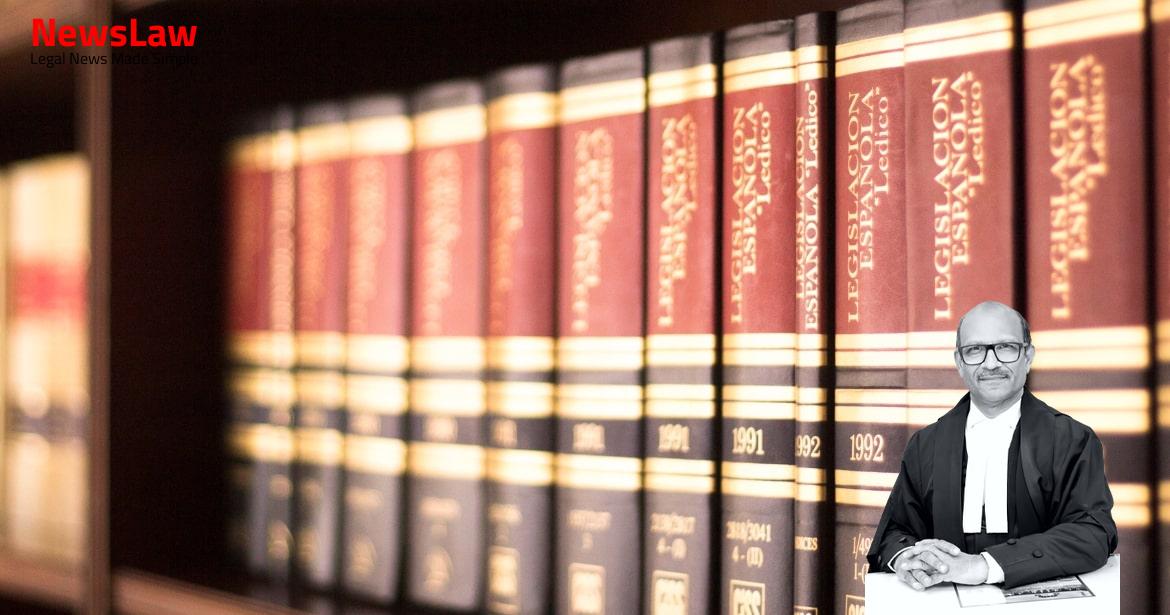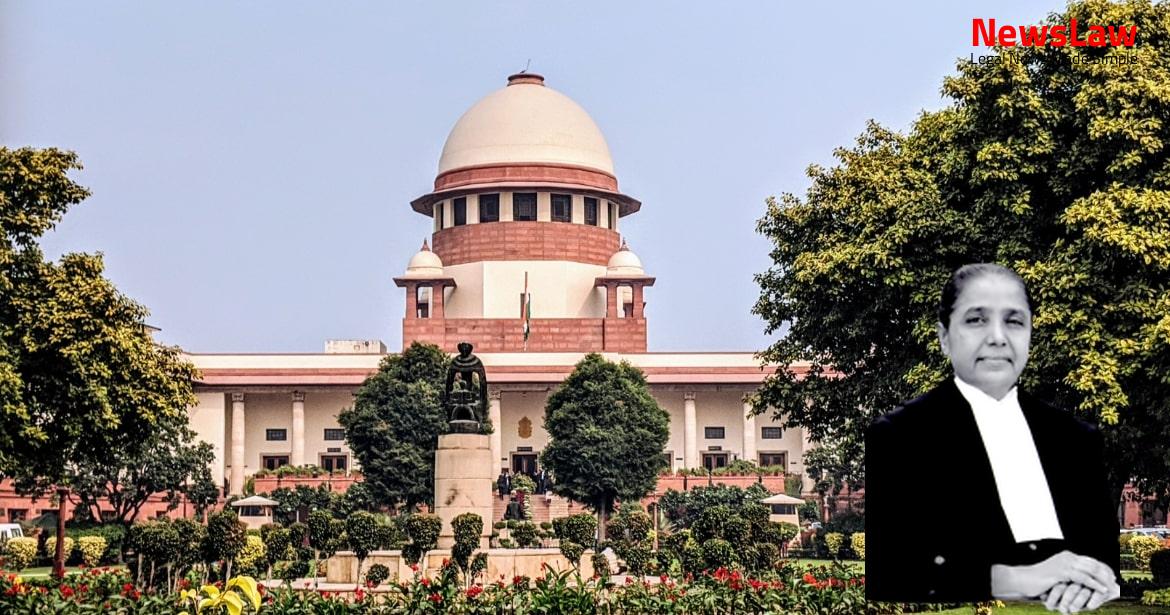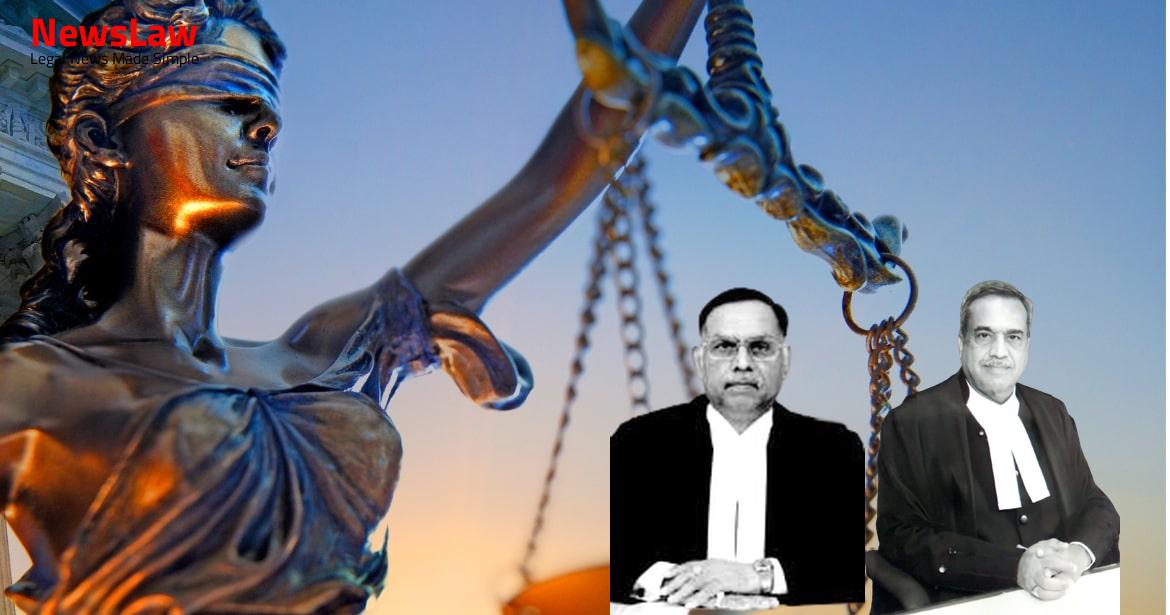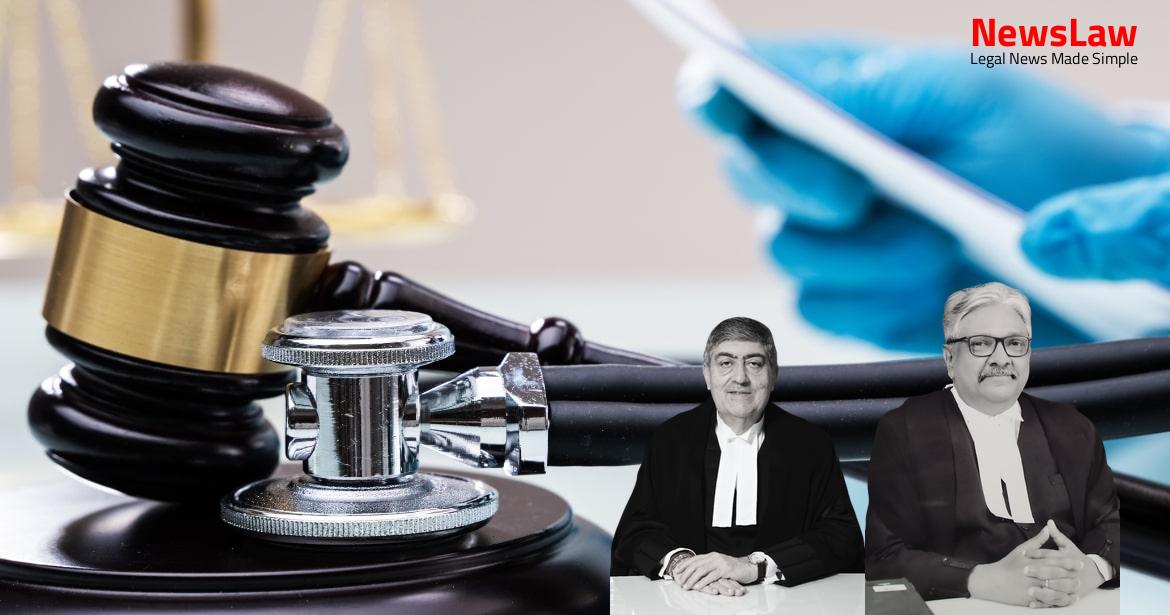In a landmark judgment by the Supreme Court of India, the accused appellants in the case involving Mohmedfaruk @ Palak Safibhai Memon have been acquitted. The court’s decision comes after a thorough review of the evidence presented and raises questions about the prosecution’s case. This case has raised significant concerns about the legal process and the need for a fair trial. Stay tuned for more updates on this pivotal legal development.
Facts
- Mohmedfaruk @ Palak inflicted a blow on the back of Mohammad Sohail with a sharp weapon.
- Charges were framed against the accused appellants under Sections 302, 323, and 120B IPC.
- Prosecution examined 18 witnesses and exhibited 131 documents.
- Accused appellants denied the allegations during Section 313 questioning.
- No evidence was led in defense by the accused appellants.
- Trial Court convicted and sentenced the accused appellants.
- Accused appellants challenged the judgment in Gujarat High Court, which was rejected.
- Accused Mohmedfaruk @ Palak hurled abuses at Mohammad Sohail leading to a confrontation.
- FIR lodged promptly within two and a half hours of the incident.
- Investigating Officer collected call detail records and filed charges under relevant sections.
- Mohmedfaruk @ Palak collected arms and concealed them in his scooter.
- Accused appellants launched an assault on Mohammad Sohail with sharp weapons.
- Accused appellants were arrested about five days after the incident.
- The instant criminal appeals have been filed by Allarakha Habib Memon, Amin @ Lalo Aarifbhai Memon, and Mohmedfaruk @ Palak Safibhai Memon.
- They are appealing the common judgment dated 18 February, 2019, passed by the Division Bench of High Court of Gujarat at Ahmedabad.
- The appeal is against the dismissal of Criminal Appeal Nos. 94 of 2015, 450 of 2015, and 563 of 2015 by the High Court.
- The trial Court and High Court’s decision was based on the appellants collecting weapons in the dicky of the scooter.
- The trial Court had convicted the appellants under Section 302 read with Section 120B of the Indian Penal Code, 1860.
- The appellants were sentenced to imprisonment for life with a fine of Rs. 1,000 each, with a default punishment of rigorous imprisonment for three months if the fine is not paid.
Also Read: Judgment by the Supreme Court Of India: Board of Directors vs Charged Officer
Arguments
- Demistalkumar(PW-12) reached the police station first with the weapons used in the crime at 9:15 pm.
- His statement was not recorded or brought to light, despite being an eyewitness and providing crucial evidence.
- The statement of Demistalkumar(PW-12) should have been treated as the first information report (FIR) based on legal requirements.
- Contradictions were found in the statements of Demistalkumar(PW-12) and the first informant Mohammad Arif Memon(PW-11).
- The identification of the accused by Demistalkumar(PW-12) without a Test Identification Parade (TIP) was considered weak and unreliable.
- The FIR was lodged much later based on the statement of Mohammad Arif Memon(PW-11), contradicting the timely information provided by Demistalkumar(PW-12).
- The evidence of Mustaq(PW-13), another eyewitness, was not brought on record, indicating deliberate concealment by the prosecution.
- Important aspects such as daily diary entries and discrepancies in statements were intentionally withheld by the prosecution.
Also Read: Acquittal of Accused in Fabricated Kidnapping Case
Analysis
- Major inconsistencies between the evidence of the first informant, Mohammad Arif Memon(PW-11), and the Police Constable, Demistalkumar(PW-12) regarding the presence of the first informant at the crime scene.
- The FIR was registered based on the oral statement of the first informant at the hospital, raising questions about the authenticity of the FIR preparation process.
- Witness statements contradicting each other on critical aspects like the time of incident reporting and the sequence of events leading to the FIR registration.
- Lack of credible link evidence and proper custody records for seized items leading to doubts about the prosecution’s case.
- Witness testimonies raising doubts about the presence of eyewitnesses at the crime scene and their reliability.
- Confessions deemed inadmissible as the accused were presented by police, casting suspicion on the investigation process.
- Contradictions in witness statements regarding injuries, actions taken post-incident, and involvement in the assault.
- Police officer did not record the FIR on receipt of information about cognizable offence
- FIR was prepared after reaching the spot with deliberations, consultations, and discussions
- Judgment in Mustkeem alias Sirajudeen v. State of Rajasthan stated bloodstained weapon recovery alone cannot lead to conviction without connection to the murder
- Prosecution failed to provide convincing evidence to establish guilt of accused beyond doubt.
- Conviction of accused appellants by trial court and high court does not stand scrutiny.
- Accused appellants deserve benefit of doubt and are acquitted.
- Impugned judgments of trial court and high court are quashed and set aside.
- Court may interfere with findings of lower courts if evidence has not been properly appreciated and findings are perverse.
Also Read: The Case of Custodial Death: A Landmark Judgment by the Supreme Court of India
Decision
- The accused-appellant Mohmedfaruk @ Palak Safibhai Memon is ordered to be released forthwith.
- The bail bonds of the accused-appellant Mohmedfaruk @ Palak Safibhai Memon are discharged.
- The accused-appellants Allarakha Habib Memon and Amin @ Lalo Aarifbhai Memon are on bail and are not required to surrender.
- All the accused appellants are acquitted of the charges.
- Any pending application(s) are disposed of.
Case Title: ALLARAKHA HABIB MEMON ETC Vs. THE STATE OF GUJARAT (2024 INSC 590)
Case Number: Crl.A. No.-002828-002829 – 2023



